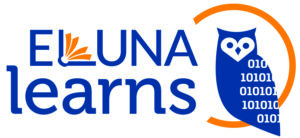Register Now/Watch the recording on demand!
Session Q&A
Wednesday, January 17, 2024. 1:00 pm – 4:00 pm. On Demand – Access for a year post event.
Agenda:
- 1:00 pm – 1:05 pm. Introduction
- 1:05 pm – 1:50 pm. Using AI to format Alma item descriptions
- 1:50 pm – 2:00 pm. 10 minute break
- 2:00 pm – 2:45 pm. Talk with Primo – a generative AI chat tool for finding books
- 2:45 pm – 2:55 pm. 10 minute break
- 2:55 pm – 3:40 pm. Practical Applications of Generative AI: Using the GPT API for Text Analysis in Library Work
Note, schedule times are approximate. Schedule may shift slightly during the event.
Using AI to format Alma item descriptions. Aaron Krebeck, Director of Library and User Services, Washington Research Library Consortium; Jacqueline Saavedra, Consortial Network Zone Manager, Washington Research Library Consortium.
Last year WRLC’s Metadata Committee approved guidelines for standardizing serial holding and item descriptions in the WRLC Alma Institution Zones. The standards were meant to improve metadata moving forward and improve the discovery of print periodicals in the WRLC instances of Primo VE. The recommendations did not include any initiative to correct the millions of descriptions that were already in the catalog. However WRLC staff felt that this retroactive application of standards could be done by a combination of artificial intelligence and the Alma APIs.
Talk with Primo – a generative AI chat tool for finding books. Corinna Baksik, Senior Systems Librarian, Harvard University; Katie Amaral, Senior Digital Library Software Engineer, Harvard University.
UX research on Primo indicates that finding location information of books on the shelf is difficult. Location information competes with other vital data points about an item and requires multiple clicks. Additionally, to understand the opening hours of these locations requires visiting a separate website. Our goal is to implement an experimental generative AI chat interface that patrons can interact with by asking questions with natural language in a conversational style. The AI tool will return curated answers with complete location and hours information. A demo interface will integrate with an AI platform to interpret the natural language semantic search input, search and filter with the Primo API, and return results for patrons’ acceptance testing. This presentation will include a description of the functional requirements and considerations, followed by a basic overview of the technical framework and what we learned as we built the tool and continue to refine it.
Practical Applications of Generative AI: Using the GPT API for Text Analysis in Library Work. Jonathan Young, Natural Sciences Librarian, University of Hawaiʻi at Mānoa.
Generative AI such as ChatGPT enables new ways to interact with data for librarians. Leveraging this power to read and analyze data does not require large development teams but is accessible to individual librarians. This presentation will describe how a science librarian has used the GPT API to inform collection development and outreach. For example, course descriptions can be analyzed and mapped to Library of Congress Classifications, which are then used in Rialto/Alma to provide course specific alerts for collection development. Practical examples will be situated in a general framework of utilizing generative AI responsibly to empower librarians with text analysis.

